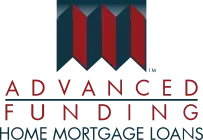
A housing bubble occurs when demand for real estate outpaces supply, causing the average price of properties to rise – often at an alarming rate. This impacts homebuyers and sellers when it occurs, as they consider whether now is a good time to buy or sell a house. Here, we take a closer look at how housing bubbles work and how you can learn to figure out if this is the type of real estate housing market that you are currently in.
Housing Bubble: Definition
A housing bubble (aka a real estate bubble) is generally defined as a period of unexpected or unusual growth in demand for real estate and housing, paired with a sudden or uncommon spike in home pricing. As alluded to above, these circumstances occur when demand greatly outpaces supply, and homebuyers are faced with a limited choice of options, causing prices to go up as a result. The trouble with this scenario is that (a) investors and speculative buyers are often prone to bidding up the market, causing home prices to rise significantly and (b) when supply eventually realigns with demand, the bubble can “pop” so to speak – causing a rapid dip in the number of home sales and the average price of homes.
In other words, housing bubbles occur when buyers are keen to get their hands on homes, but can’t find enough properties on the market, because they’re willing to pay top dollar to secure these real estate holdings. While good for home sellers at first, prices can rapidly begin to decline and home purchase offers shrink in number when a more plentiful supply of homes becomes available. Should a housing bubble “pop,” it can leave buyers with homes (and home mortgages) priced far above current valuations, and sellers with properties that go unsold or sell for amounts far less than anticipated.
No two housing bubbles are alike in terms of their economic impact, how long they last, and how many individual homeowners are affected. On the bright side, they are also temporary (and sometimes relatively short-lasting) events from which the economy has historically been able to recover. Regardless, becoming more aware of how housing bubbles occur can provide crucial insights that can help you spot potential warning signs to tip you off when a real estate bubble may be pending.
Currently, some fear that a sharp uptick in home prices over the past year coupled with a drop in the supply of available homes due to COVID-19 indicates that a housing bubble may presently be occurring. Historically low interest rates may also be leading to increased speculation on the part of homebuyers. Likewise, the expiration of certain homeowner protections afforded under the CARES Act may lead to an impending glut of homes entering the market. Nonetheless, as discussed further below, given heightened consumer protections and a more tightly regulated mortgage industry, many experts DO NOT believe that we are in the midst of a housing bubble at present.
How Real Estate Bubbles Form
Like the dot-com and technology bubbles, the concept of a housing bubble isn’t new, and real estate bubbles have formed (and popped) several times throughout history. Perhaps the most well-known example in recent years is the housing crash that occurred in the United States in the mid-2000s, fueled by explosive growth in subprime mortgage lending.
Put simply: Circa 2006 and 2007, too many borrowers had applied for and received mortgage loans that were too expensive for them to afford, and unusual growth in home purchases led to unusual growth in demand for houses and real estate speculation. Coming on the heels of the Federal Reserve’s recent raising of interest rates (as a tool through which to curb inflation), subprime borrowers (especially those with adjustable-rate mortgages) found themselves suddenly unable to keep up with monthly mortgage payments. Failure to make these payments prompted millions of home buyers to go into foreclosure – prompting a stark dip in house prices, a rise in financial difficulties, and the housing bubble ultimately burst. Sadly, this real estate bubble had a major effect on the U.S. economy, causing it to slide into recession.
On the bright side, intervening years have brought new laws and regulations (e.g. July 2010’s Dodd-Frank Wall Street Reform and Consumer Protection Act), and the institution of government agencies such as the Consumer Financial Protection Bureau, incorporated in 2011. As a result, mortgage lenders have become more stringent in background checks and requirements for borrowers, and have become subject to greater oversight, legal compliance standards, and government scrutiny, helping improve the odds that home loans are extended only to qualified buyers. All of which is to say that yes – real estate and housing bubbles can and do form, and have done so numerous times before, to varying economic effects. However, more legal and financial safeguards have been put in place in recent years to help stave off these unwanted occurrences and minimize the impact of bubble-popping effects.
How Do We Know if We’re Currently in One?
Are we currently in the midst of a housing bubble? According to experts and economists, the jury still officially remains out. However, these are some of the things that are commonly looked at to determine if a bubble exists:
- Growth in demand for existing and new homes
- Rise or decline in average home prices
- Increase or decrease in mortgage rates (noting that low rates drive up demand because they make mortgages more accessible)
- Patterns of real estate investment activity
- Dips or spikes in new home construction
- Current mortgage regulations and guidelines
In general, though, many experts do not believe we are presently facing a housing bubble, as the government has taken extensive steps in recent years to curb predatory lending practices and high-risk mortgages are less prevalent in the market. Or, put another way, a growing number of real estate pros believe that the current housing market situation is one that is born of natural ebbs and flows in real estate supply and demand.
What Happens if the Bubble Bursts?
What might happen if a housing bubble suddenly bursts, though – and what steps should you take if you’re a homeowner or home buyer who stands to be impacted by a sudden pop in the real estate market?
For starters, if we are in a housing bubble, and it suddenly pops, the short-term effect is that home prices (and home values) will rapidly sink – potentially leading to a scenario in which you owe more on a home loan than a property is worth. (A situation commonly referred to as being “underwater” on a property, which makes it more difficult to sell without having to take a financial loss.) Likewise, if you are an investor or homeowner who has purchased a property with an eye toward making a certain level of profit (as well as on any upgrades you’ve made to the home), you may also find your investment coming up short on returns.
Bearing this in mind, if you’re concerned about a potential housing bubble, it’s important to:
- Do not overextend yourself financially by taking on a mortgage that you cannot afford
- Secure the best interest rate and loan program possible as a prospective buyer
- Research whether or not you have the option of entering mortgage forbearance
- Consider if it makes sense to refinance your home loan while rates remain low
- Conduct significant due diligence on any proposed real estate purchase
- Engage in extensive up-front financial planning and budgeting including best- and worst-case scenarios
What Does a Potential Housing Bubble Mean for Me?
Experts continue to speculate as to whether or not we’re presently in a housing bubble. A few points that you may wish to keep in mind as you weigh a potential real estate investment decision, prospective refinancing, or the purchase or sale of a new or existing home include:
- Review whether or not there’s a way to pay off your mortgage faster
- Determine if it makes sense to refinance or modify your home loan
- Think about whether a potential rental or sale of your property is warranted
- Calculate if it’s prudent to switch to a fixed vs an adjustable-rate mortgage
- Contemplate if you’re best served by waiting to see how the market evolves
The Bottom Line
Although more financial and legal protections are in place to help safeguard the economy than in prior years, the jury still remains out on whether we’re currently in a housing bubble. However, real estate bubbles certainly can and do occur from time to time, making it important to consider what steps you can take to help safeguard any potential home purchase or investment before they happen.
On the bright side, with a little up-front planning and research, you can quickly identify strategies and resources that can help you get a better sense of whether a housing bubble is forming. You can also get a better handle on the many financial tools – e.g. home refinancing options, changes in loan type, government-backed home purchase incentives, etc. – that you can draw upon in response to any prospective concerns. As ever, proactivity pays here… and can potentially save you big on real estate in the long run.





